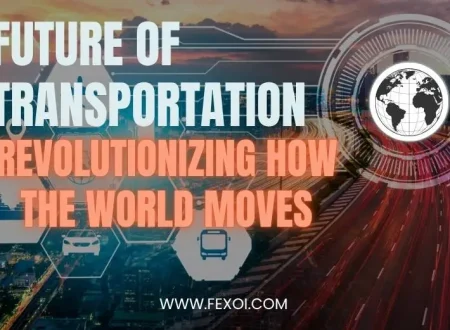The digitalization future isn’t a far-off vision—it’s unfolding now, and it’s leaving behind businesses that fail to adapt. Companies stuck in outdated processes are not just inefficient—they’re invisible in a fast-moving digital economy. If you’re still debating whether to invest in digital transformation, understand this: your competitors already have.
What Is the Digitalization Future?
The digitalization future refers to the accelerating shift toward automation, smart technology, and data-driven decision-making. It’s more than just putting systems online—it’s about redesigning your entire operational structure to thrive in a digitally connected world.
Digitalization is reshaping how we:
- Work
- Communicate
- Shop
- Manufacture
- Deliver services
Why Traditional Business Models Are Dying
Traditional business models that rely on paper trails, face-to-face transactions, and isolated departments are quickly falling behind agile, cloud-powered competitors.
- Pain Point: If you’re still using spreadsheets for inventory or requiring customers to call for bookings, you’re bleeding efficiency.
- Solution: Modern digital systems automate these tasks, freeing up resources and delivering better customer experiences.
Key Digital Transformation Trends Shaping the Future
Understanding these digital transformation trends helps you stay ahead of disruption.
AI and Machine Learning
Automation is replacing manual tasks across industries—from customer service bots to predictive maintenance.
Cloud-First Architecture
Companies are moving from legacy systems to scalable cloud platforms for data accessibility and flexibility.
Edge Computing
Critical for industries like manufacturing and logistics, edge computing reduces latency and speeds up processing.
Blockchain Adoption
Secure, transparent systems are being adopted in finance, healthcare, and supply chain management.
Remote and Hybrid Work Environments
The future of work demands digital tools that support flexible collaboration.
Impact of Digitalization on Different Industries
Healthcare
From telemedicine to patient portals, digitalization is saving lives and improving service delivery.
Retail
E-commerce platforms, personalized marketing, and inventory management systems have redefined retail operations.
Finance
Fintech startups and mobile banking have disrupted traditional banking models.
Education
Online learning platforms and digital resources now dominate over printed textbooks and face-to-face instruction.
Benefits of Embracing Digitalization
Improved Efficiency – Automation reduces human error and speeds up workflows.
- Cost Savings – Cloud tools often cost less than maintaining legacy systems.Scalability – Easily adapt to growing business needs.
- Customer Satisfaction – Provide faster, better, and more personalized service.
- Competitive Advantage – Innovate faster and respond to market changes in real time.
Digitalization Trends You Can’t Ignore
These digitalization trends are not optional—they’re mandatory for long-term survival.
Cybersecurity Integration
Security is no longer an add-on — it’s integrated into every step of the digital workflow.
Hyper-Automation
Beyond simple task automation, businesses are automating complex workflows and decisions.
Intelligent Data Analytics
Companies are using data to predict behavior, optimize supply chains, and personalize offerings.
Sustainability Tech
Digital tools are now tracking emissions, energy use, and sustainability metrics.
Common Barriers to Digital Transformation
Despite the benefits, many businesses struggle to adopt digital change.
- Lack of digital strategy
- Fear of cost and complexity
- Resistance from leadership
- Limited internal expertise
- Poor change management
The digitalization future doesn’t wait for anyone. The longer you delay, the harder it becomes to catch up.
The Human Side of the Digital Shift
It’s easy to talk about software, systems, and automation. But digital transformation is as much about people as it is about technology.
- Employees need reskilling.
- Leaders need to foster a digital-first culture.
- Customers expect intuitive digital experiences.
Ignoring the human aspect is a surefire way to derail any digital strategy.
Small Businesses & the Digitalization Future
Many small businesses fear they can’t afford to go digital. But with the rise of SaaS platforms and low-code tools, digital transformation is more accessible than ever.
Affordable Tools
Use platforms like Shopify, QuickBooks, and HubSpot to digitize sales, accounting, and marketing.
Outsourcing for Agility
Freelancers and digital agencies can help fill knowledge gaps at a fraction of the cost of hiring.
Technologies Powering the Digitalization Future
These technologies are fueling the evolution of modern businesses:
- Artificial Intelligence (AI)
- Internet of Things (IoT)
- Cloud Computing
- Big Data Analytics
- 5G Networks
- Augmented/Virtual Reality (AR/VR)
Investing in these technologies now ensures you stay ahead of emerging digital transformation trends.
Preparing Your Company for What’s Next
Here’s how to future-proof your business:
- Audit Your Current Digital Maturity
- Build a Roadmap Based on Business Objectives
- Invest in Scalable Technologies
- Train Teams on Digital Tools
- Partner with Experts or Consultants
- Stay Informed on Emerging Digitalization Trends
The digitalization future is already shaping the winners and losers of tomorrow’s economy. Where will you stand?
FAQs
Q1: What is the digitalization future?
A: The digitalization future refers to the growing role of digital technologies in reshaping business models, consumer behavior, and industry practices.
Q2: What are the top digital transformation trends?
A: AI, cloud computing, edge computing, cybersecurity, and hybrid work models are among the top digital transformation trends.
Q3: How does digitalization impact small businesses?
A: It improves efficiency, enables data-driven decisions, enhances customer service, and levels the playing field with larger competitors.
Q4: What are the current digitalization trends in 2025?
A: Hyper-automation, intelligent analytics, embedded cybersecurity, and sustainable technology are dominating digitalization trends.
Q5: How can my business prepare for digitalization?
A: Start by auditing your current systems, defining goals, investing in digital tools, and fostering a digitally capable workforce.
Conclusion
The digitalization future is inevitable. Those who adapt will not only survive but thrive in an increasingly digital economy. Falling behind is no longer just inconvenient—it’s catastrophic.
Don’t wait to get disrupted. Disrupt yourself. Start your digital transformation today.







